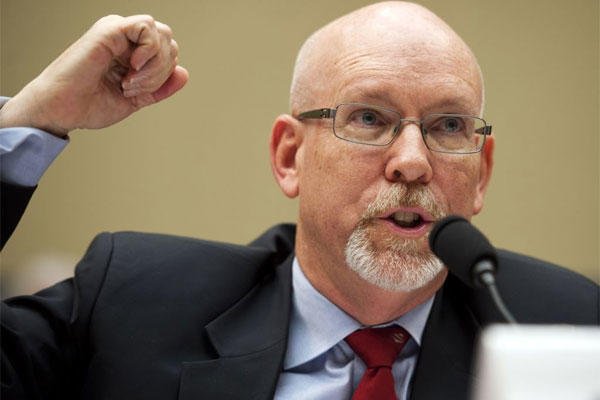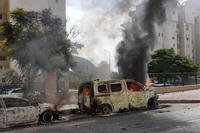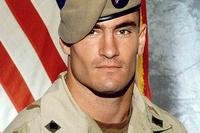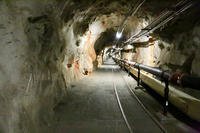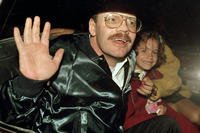"Greg, we're under attack," Ambassador Chris Stevens said in his last phone call from the burning U.S. consulate in Benghazi, Libya, last Sept. 11.
"I said okay" and then the signal was lost from Stevens, who was killed with three other Americans in the terror attacks on the consulate and a nearby CIA compound, Gregory Hicks, the former deputy chief of mission at the U.S. Embassy in Tripoli, Libya, told Congress Wednesday.
At a contentious House hearing, Hicks testified on the frantic and confused events surrounding the attacks and the series of increasingly urgent calls he made and received at the U.S. Embassy in Tripoli, including one from then-Secretary of State Hillary Clinton on the night and morning of the incidents.
Hicks was billed as a whistleblower by Republicans on the House Oversight and Government Reform Committee, who titled the hearing "Exploring Failure and Recognizing Courage."
Hicks said he tried and failed to get the U.S. military moving to stop the attacks and rescue Stevens and the other personnel.
He said he was also rebuffed in attempts to send four U.S. special operators from Tripoli to Benghazi to assist in the evacuation and the return of the bodies of the slain Americans.
Hicks quoted a military attaché in Tripoli as telling him in frustration that "it's the first time in my career that a diplomat has [shown] more balls than the military."
Ahead of his testimony, Pentagon officials said the planes and troops to carry out a rescue mission were not immediately available in the region, and would not have arrived in time to make a difference.
"The fact remains, U.S. forces could not have arrived in time," said George Little, the chief Pentagon spokesman.
Special operators were pressing to go to Behghazi, but the military's Africa Command denied the request.
"It made sense that these guys wanted to go to where the action was," but they were told that "you guys going to Benghazi are not going to be helpful," said Marine Col. Dave Lapan, the spokesman for Gen. Martin Dempsey, chairman of the Joint Chiefs of Staff. Lapan added that "we have no evidence that they could have arrived in Benghazi in time" to affect the outcome.
Much of the hearing was consumed in partisan back and forth, as Republicans charged a coverup on Benghazi by the Obama administration. Democrats charged that the hearing was a smokescreen for political attacks on Clinton and Obama.
Hicks was joined at the witness table by Mark Thompson, the State Department's acting deputy assistant secretary for counterterrorism, and Eric Nordstrom, the former State Department regional security officer in Libya.
All three at times paused in their testimony as they choked up with emotion over the deaths of Stevens, his aide Sean Smith, and former Navy SEALs Tyrone Woods and Glen Doherty, who were working as contractors protecting the CIA compound in Benghazi.
"I believe if we had been able to scramble a fighter or aircraft or two over Benghazi as quickly as possible after the attack commenced, I believe there would not have been a mortar attack on the annex in the morning because I believe the Libyans would have split," Hicks said.
"They would have been scared to death that we would have gotten a laser on them and killed them," Hicks said.
However, Dempsey and former Defense Secretary Leon Panetta have previously testified to the House and Senate that the nearest available fighters were in Italy and could not have reached Benghazi in time.
At about 2 a.m., Hicks said he took a phone call from Clinton and her senior staff to brief her on the situation in Benghazi. "I briefed her on the search for Stevens and told her we would need an evacuation," he said. Hicks said Clinton agreed.
Under questioning from Rep. James Lankford, R-Okla., Hicks and the other witnesses said that security was lacking at the Benghazi consulate and the Tripoli embassy, and that was cne of the reasons for Stevens' trip to Benghazi during a time of rising tensions.
Hicks said Stevens wanted to consult with the Benghazi team on converting the consulate into a permanent post. He also "wanted to make a symbolic gesture to the people of Benghazi" of American support through his presence.
